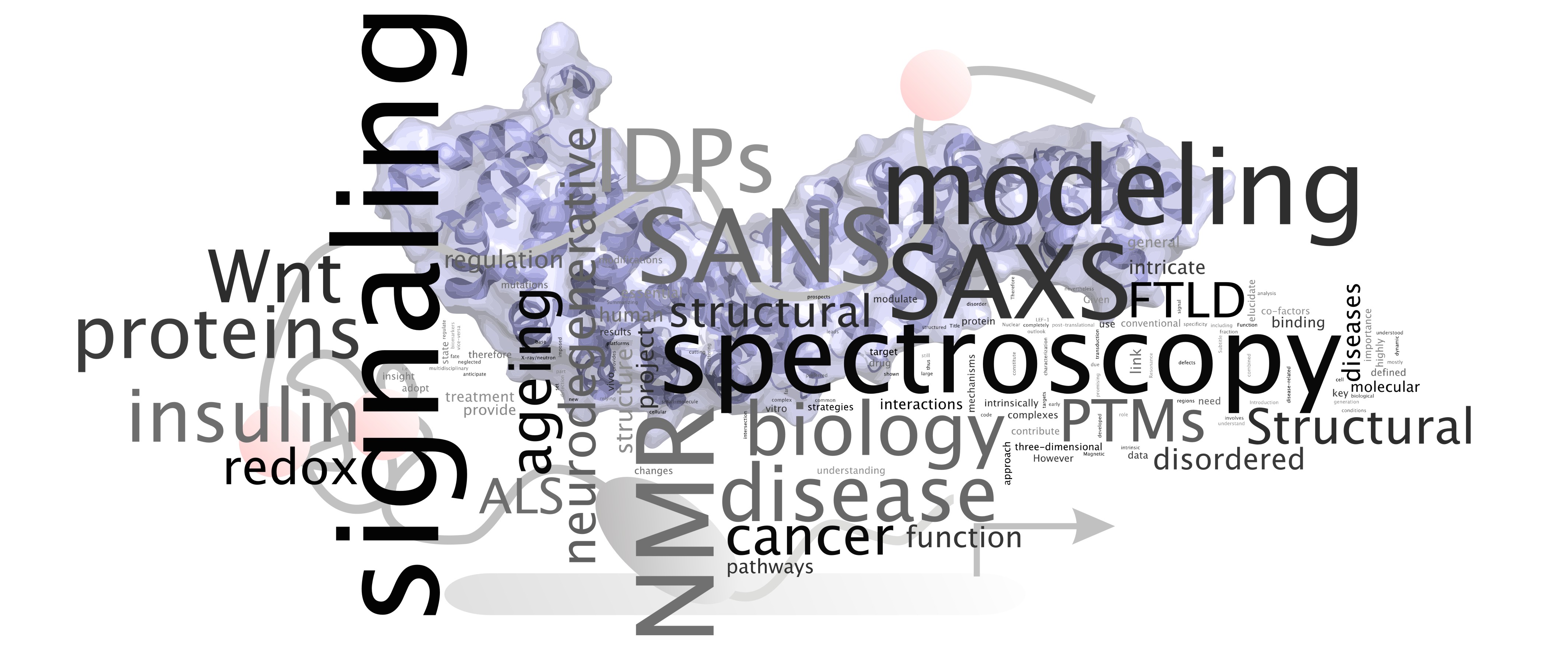Madl Group, Medical University Graz
Integrated structural biology of signal transduction and metabolism research
Research of the Madl group focuses on integrated structural biology of signal transduction and metabolism research. One of our major interests are the general molecular mechanisms of signal transfer mediated by disordered proteins. Distortions in signal transduction lead to a plethora of diseases (i.e. cancer and neurodegenerative disorders) and are linked to ageing. The Madl group aims to reveal the molecular mechanisms underlying interactions of disordered proteins to provide insight into the intricate link between their function, regulation and human diseases. We use metabolic phenotyping to obtain systemic insight into the molecular outcome of distortions in signaling pathways in cell-based assays, in vivo model systems and patients. This allows us to bridge the gap between atom and patient and vice versa and to obtain new insights into disease mechanisms and diagnosis.
To be able to study large and dynamic biomolecular complexes involved in signal transduction, the Madl group employs and develops an integrated structure determination protocol in which they combine NMR spectroscopy, SAXS/SANS, complementary techniques (i.e. MS, EM, FRET) and modeling strategies which are especially suited to study the structure of large and dynamic biomolecules and biomolecular complexes. Next to molecular dynamics programs widely used in the NMR community, their computational focus is on the integration of novel techniques in the Rosetta de novo structure prediction framework. Several approaches have been developed and applied to challenging biological systems in the last few years.
